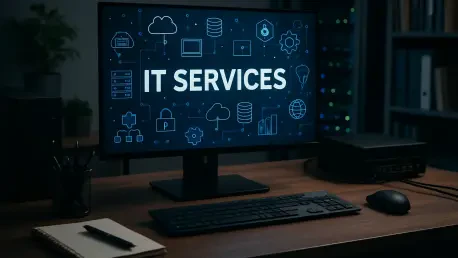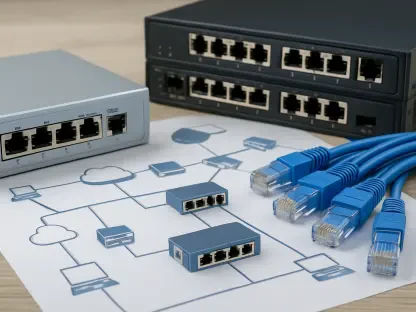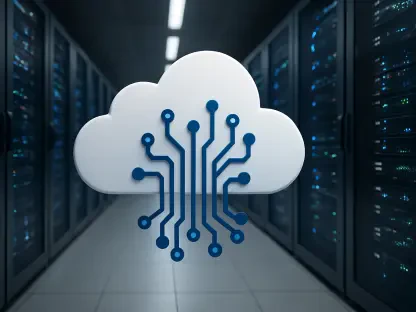In an era where technology underpins nearly every aspect of business, the risks of system failures, cyberattacks, and operational disruptions pose significant threats to companies of all sizes, making resilience a critical priority. A single data breach or server crash can halt operations, tarnish reputations, and even impact entire industries or communities that rely on a business’s services. Managed IT Services have become a critical solution, offering not just technical support but a proactive strategy to ensure continuity and adaptability. Far from being a mere luxury, these services are now an essential pillar for any organization aiming to thrive in a digital landscape fraught with challenges. By entrusting technology management to skilled providers, businesses can focus on their core missions while safeguarding against the unexpected. This approach transforms potential vulnerabilities into strengths, positioning companies to navigate uncertainties with confidence and maintain a competitive edge in an ever-evolving market.
Moving Beyond Reactive Fixes
The traditional “break-fix” model of IT management, where businesses only addressed issues after they arose, is a relic of a less connected time. This reactive stance often resulted in extended downtime, frustrated customers, and significant financial losses as companies scrambled to repair systems under pressure. Managed IT Services flip this paradigm by prioritizing prevention over cure. Through continuous monitoring, regular software updates, and system optimizations, these services aim to stop problems before they start. This shift mirrors the logic of preventive maintenance in other fields, ensuring that technology remains a reliable asset rather than a liability. By identifying potential weaknesses early, businesses avoid the chaos of unexpected failures, preserving both operational flow and client trust in a landscape where every minute of downtime counts.
Furthermore, this proactive approach extends beyond mere technical upkeep to encompass a broader strategy for stability. Managed IT Services provide detailed analytics and forecasting to anticipate future needs, allowing companies to plan rather than react. This forward-thinking mindset reduces the likelihood of major disruptions, such as hardware failures or security lapses, which could otherwise derail operations. It also translates into cost savings, as addressing minor issues before they escalate prevents the need for expensive emergency interventions. For businesses operating on tight budgets, this can be a game-changer, freeing up resources for innovation and growth. Ultimately, the move from reactive fixes to ongoing care establishes a foundation of reliability that supports long-term success in a tech-driven world.
Supporting the Human Side of Technology
Technology, while powerful, can become a source of frustration for employees when it malfunctions, leading to wasted time and diminished productivity. Managed IT Services address this by acting as a crucial support system, stepping in to resolve issues swiftly and effectively. This assistance ensures that staff can concentrate on their primary roles without being bogged down by technical hiccups. Beyond fixing problems, these services often include training and guidance, helping employees navigate complex systems with greater ease. The result is a workforce that feels empowered rather than hindered by the tools they use, fostering a more positive and efficient work environment where challenges are met with solutions rather than stress.
Additionally, the human-centered focus of Managed IT Services builds a culture of trust within organizations. When employees know that reliable support is just a call or click away, it alleviates anxiety around technology use, much like a dependable safety net encourages confidence. This psychological boost can enhance morale, encouraging staff to engage more fully with their tasks and contribute to company goals. Moreover, by minimizing disruptions, IT support helps maintain smooth internal communication and collaboration, which are vital for team cohesion. This nurturing approach to technology management underscores that resilience is not just about systems but also about the people who rely on them, ensuring that businesses operate as cohesive units ready to face any obstacle.
Navigating Growth with Scalable Solutions
As businesses expand, their technology requirements grow more complex, with increasing numbers of users, devices, and data streams to manage. Without proper planning, this growth can strain existing systems, leading to inefficiencies or vulnerabilities that hinder progress. Managed IT Services offer a lifeline by designing scalable solutions tailored to evolving needs. Whether integrating cloud-based platforms for flexibility or upgrading infrastructure to handle higher demand, these services ensure that technology keeps pace with ambition. This adaptability allows companies to seize new opportunities without being held back by outdated or overstretched systems, maintaining a competitive stance in fast-moving markets.
Beyond immediate scalability, partnering with IT providers offers strategic foresight for sustainable growth. These experts assess current setups and anticipate future demands, crafting systems that can expand securely over time. This might involve implementing modular architectures or adopting technologies that accommodate spikes in usage without compromising performance. Such planning prevents the common pitfalls of rapid expansion, like data bottlenecks or security gaps, which can expose businesses to risk. By aligning technology with long-term objectives, Managed IT Services enable organizations to build a robust foundation that supports not just current operations but also future aspirations, ensuring growth is a strength rather than a burden.
Fortifying Defenses Against Cyber Threats
In a digital age where cyberattacks are increasingly sophisticated, businesses—especially smaller ones with limited resources—find themselves prime targets for malicious actors. A single breach can compromise sensitive data, disrupt operations, and shatter customer confidence. Managed IT Services play an indispensable role in countering these threats by deploying advanced security measures such as firewalls, intrusion detection systems, and regular vulnerability assessments. These tools form a critical barrier against external attacks, while ongoing monitoring ensures that suspicious activity is identified and addressed before it escalates. This comprehensive defense strategy is essential for protecting both business assets and client trust in an environment where cyber risks are ever-present.
Equally important is the emphasis on human factors in cybersecurity, as employee error often serves as a gateway for breaches. Managed IT Services include training programs to educate staff on recognizing phishing attempts, securing passwords, and following best practices. This shared responsibility fosters a culture of vigilance, where technical safeguards and human awareness work hand in hand to minimize risks. Additionally, IT providers often conduct simulations and updates to keep defenses aligned with emerging threats, ensuring that businesses remain one step ahead of attackers. By addressing both technological and behavioral aspects of security, these services create a fortified environment where companies can operate with greater assurance, knowing their digital frontiers are well-protected.
Turning Technology into a Competitive Advantage
When managed effectively, technology ceases to be a source of constant concern and instead becomes a powerful driver of business success. Managed IT Services ensure that the underlying infrastructure operates seamlessly, much like a well-maintained foundation supports a towering structure. This reliability frees up organizational focus for innovation, allowing companies to explore new tools, streamline processes, and enhance customer experiences without the distraction of technical glitches. By transforming technology from a potential obstacle into a strategic asset, these services enable businesses to differentiate themselves in crowded markets, leveraging digital capabilities to stay ahead of competitors.
Moreover, this shift in perspective encourages a mindset of opportunity rather than limitation. With Managed IT Services handling the complexities of system maintenance, updates, and troubleshooting, leadership can prioritize initiatives that drive growth, such as adopting cutting-edge solutions or expanding digital offerings. This operational freedom is particularly valuable in industries where agility and responsiveness define success. The stability provided by expert IT management also instills confidence in stakeholders, from employees to investors, signaling that the business is built on a solid technological base. Ultimately, this transformation of technology into a competitive edge positions companies to not only meet current demands but also shape future trends.
Forging Strategic Alliances for the Future
Managed IT Services transcend mere technical support, evolving into strategic partnerships that align closely with a company’s overarching vision. By collaborating with skilled IT providers, businesses gain access to specialized expertise and customized solutions that address unique challenges and goals. This relationship ensures that technology decisions are not made in isolation but are integrated with broader objectives, whether enhancing customer service, boosting efficiency, or entering new markets. Such alliances provide a roadmap for navigating future uncertainties, equipping organizations with the tools and insights needed to adapt to changing conditions while maintaining operational strength.
Reflecting on the journey, these partnerships have proven instrumental in helping countless businesses weather past disruptions with resilience. The collaborative efforts between companies and IT providers often paved the way for innovative solutions that addressed immediate crises while laying groundwork for sustained progress. Looking ahead, the focus should be on deepening these alliances, exploring how tailored IT strategies can further empower organizations to lead in their sectors. Businesses are encouraged to view technology management as a continuous dialogue, one that evolves with emerging needs and opportunities, ensuring they remain not just reactive to change but proactive in shaping a resilient future.









